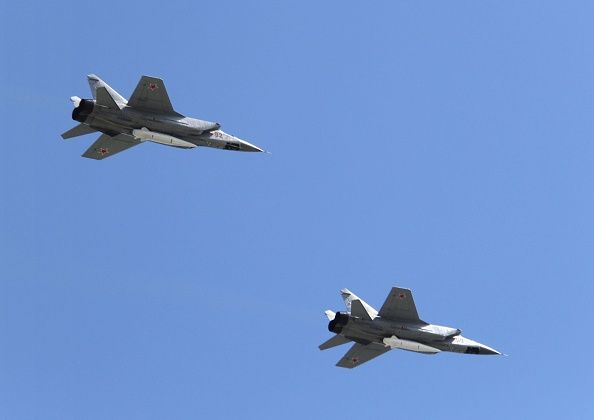2 killed, 36 injured in large-scale Russian missile, drone attack on Ukrainian cities

Editor's note: This is a developing story and is being updated.
Russia launched a large-scale missile and drone attack on Ukrainian cities overnight on Sept. 20, killing at least two people and injuring 36 others, officials reported.
Ukraine's Air Force reported that the country's air defense shot down 552 drones, 2 ballistic missiles, and 29 cruise missiles. According to the Air Force, Russia launched 579 drones, 8 ballistic missiles, and 32 cruise missiles. Direct strikes were reported in 10 locations, it said.
Air raid alerts were activated across all regions of the country around 5:45 a.m. local time, and ended around 7 a.m.
Explosions were heard in the cities of Pavlohrad and Mykolaiv around 4:40 a.m. local time, local officials reported, during an initial wave of missile attacks. Additional explosions later rang out in Dnipro shortly after 6 a.m.
In Dnipropetrovsk Oblast, regional Governor Serhii Lysak reported that one person was killed and 26 others injured in the attack on the region. Fourteen of the injured required hospitalization, including a 55-year-old man with burns on 70% of his body.
Several high-rise buildings, homes, and garages were damaged in Dnipro in the attack. Fires were also reported in Pavlohrad and Nikopol. He later reported that around 4 dozen apartment buildings had been damaged and the number of injured had risen to 30.
As of 8 p.m. local time on Sept. 20, eight remain hospitalized, while the others are under outpatient care, Lysak said.
In Khmelnytskyi, Governor Serhii Tiurin said that the body of a man in his 50s had been found in a home after a blaze was put out, and that two others had been injured.
In Kyiv Oblast, the regional military administration reported that strikes had been reported in the communities of Bucha, Boryspil, and Obukhiv. A home, 10 garage units, and five parked cars were damaged in the attack.
In Mykolaiv, Mayor Oleksandr Senkevych reported that damage had been caused in a residential area of the city, however, no casualties were reported.
Lviv Oblast Governor Maxim Kozytsky reported that two cruise missile had been shot down over the region, without casualties or damage.
Amid the attack, Poland's Air Force scrambled NATO fighter jet to protect Poland's airspace.
The attack comes just over a week since Russian drones violated Polish airspace, forcing Poland's Air Force to down multiple drones over NATO territory for the first time since the start of Russia's full-scale invasion of Ukraine.
Russia again violated NATO airspace on Sept. 19 over the Gulf of Finland in Estonian territory. Estonian Prime Minister Kristen Michal later announced that Tallinn was requesting consultations under NATO's Article 4, which allows member states to hold discussions with allies if their security is threatened.















